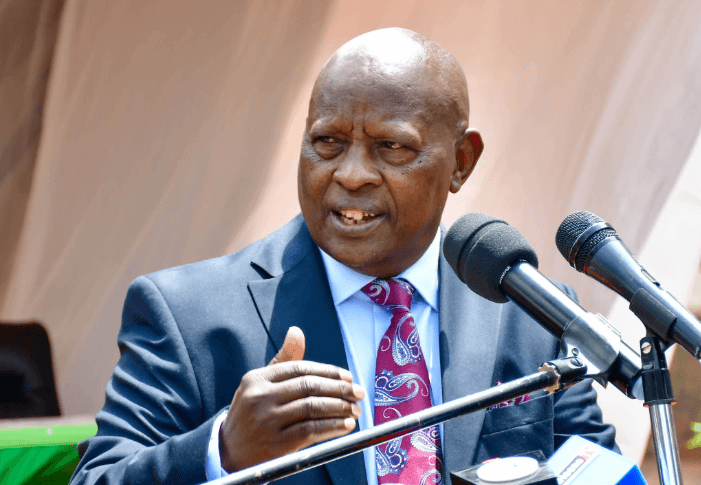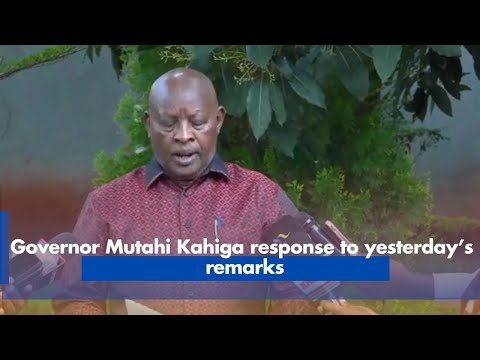The relatively low youth voter turnout in the 2022 general election has spurred a lot of discussion in the country, especially within civil society. It certainly is a concerning course.
Most of all, it is a statement in itself. It reflects the youth’s diminished confidence in the government's ability to address the myriad problems the country faces. Now, more than ever, this youth indifference to political engagement has to be addressed with the weight it deserves.
The youth, who account for more than 70 per cent of Kenya's population, face significant levels of unemployment and have little to no trust that voting will improve their situation. Moreover, there is inadequate youth representation in politics. Quite a number are even less motivated since there aren't many of our own to vote for, and some of the few young people on that platform are downright dishonourable.
For decades, we have seen the same faces on the ballot. In a democracy with a predominantly young populace like ours, the older generation of political heavyweight ought to honourably allow the young generation a chance to govern: A chance for rejuvenation.
However, political retirement is infrequent in Kenya and Africa at large. Politicians are exempt from the retirement age requirement and can continue to "work" until they are 70 or 80 years old. Furthermore, their paradigm of politics is, unfortunately, quite reprehensive. Some of them, for example, went so far as to undemocratically impose their candidacy on the electorate through skewed party nominations or not conducting them at all.
Also, the magnitude of corruption and the absence of political integrity are major issues that discourage youth participation in elections.
In the name of voter apathy, some youth hurt themselves, thinking that they are saving themselves from an ‘unnecessary’ problem; speaking to a greater problem. There is a possibility the youth are pegging their future on past mistakes based on the consequences of voting for leaders because of their ethnic identities.
Instead of understanding the power we have in our ballots, we opt to escape the responsibility of making the change that we all long for. The reasons most youth had for opting not to vote should be the same ones that they should have to make a change through voting. Also, might the voter apathy be subconsciously caused by the extension of individualism that stems from living in a developing country that is riddled by selfish leaders and education systems that focus less on the value of collaboration? This is also a possibility.
All in all, the quality of leadership in our age will determine our potential and success as a nation. We are unlikely to be saved from the mess that we are in by the same people who put us here.
In our current socio-political and economic atmosphere, no matter who gets to the House on the Hill, no matter who runs Parliament, the coming years are going to be very difficult. There is so much rot in the political system which is rife with corruption right now. Although it will take time, I am confident things will change for the better.
In this light, I believe that competent younger people should take on more of the responsibility of leadership in Kenya. Don't get me wrong. There is definitely a need and a space for the older generations to serve. It is essential that they provide genuine, critical assistance to us, the young people, in terms of preparing us for what lies ahead. However, the younger generation ought to be on the wheel and older generations may contribute their knowledge and expertise.
We might be discouraged, believing our political participation has little impact. But broadly speaking, we do have a lot of idealistic contributions to make. We have been given many reasons to be cynical, which has led to our being more so. We have been told many lies so frequently that it made it difficult for us to get engaged actively. However, ultimately, our enthusiasm and passion must remain intact.
For the upcoming generation of leaders, it's important that we not only develop an authentic voice but also use it to add value to Kenya's policy discussions and deliberations. Also, it should be positively different from what we have experienced in previous years for the betterment of our country.
As outgoing President Uhuru Kenyatta aptly put it, leadership is taken, not given. Let us take the mantle. Let us challenge ourselves. We need to be willing to put in several years of work to make these things happen. We need to be knowledgeable. Let us embrace our history and appreciate it. Let us learn from the political missteps of those who came before us while adopting their positive aspects. Let us take the reins as the leaders of today.
Teddy Nyale
Alliance High School alumnus and first year law student at UoN
WATCH: The latest videos from the Star









